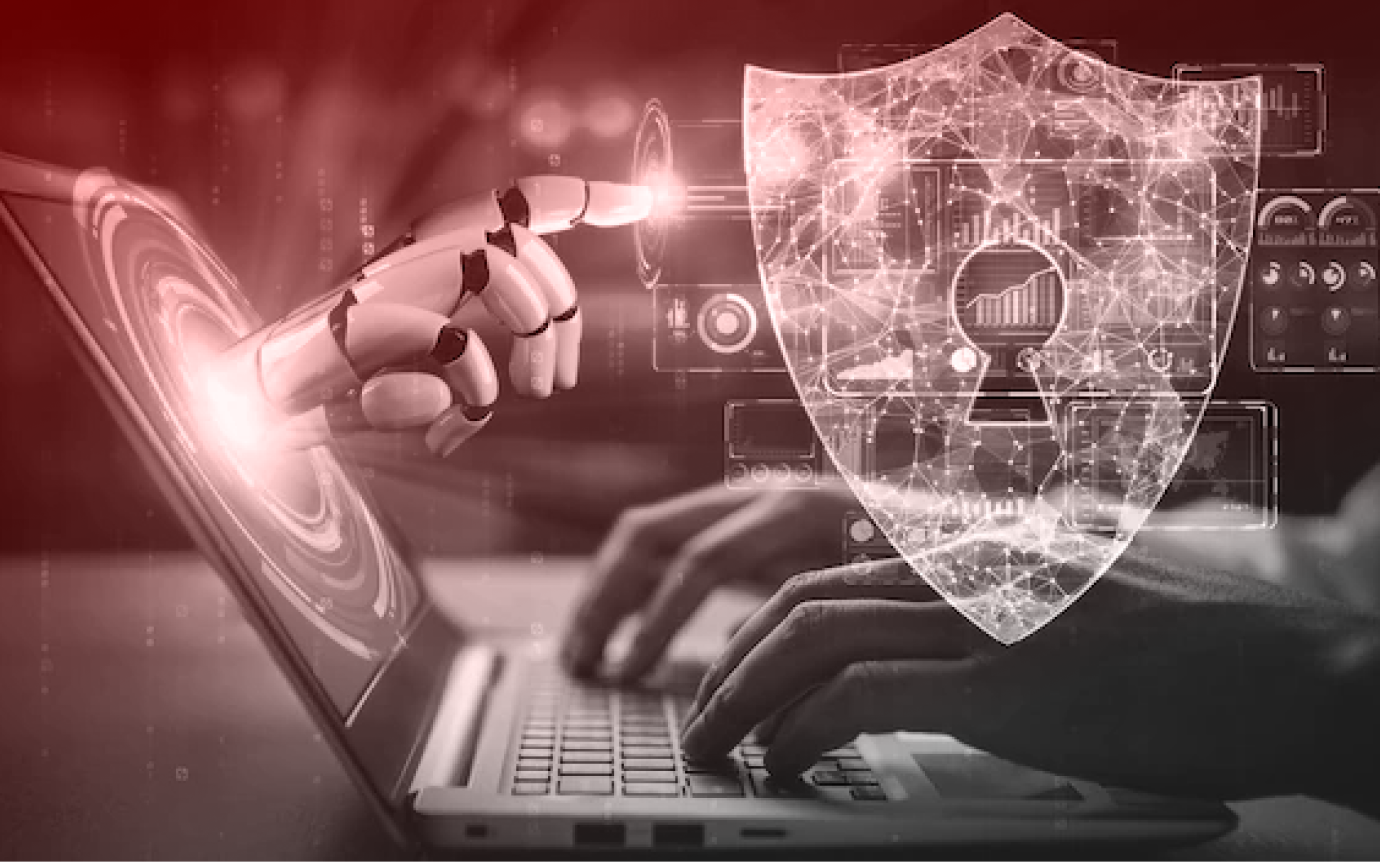What is Artificial Intelligence & Cyber Security?
Artificial Intelligence (AI) is a field of computer science and engineering that deals with the design and development of intelligent machines. AI research focuses on how computers can be made to "think" like humans by simulating their cognitive processes. This includes tasks such as natural language processing, problem-solving, image recognition, machine learning, and self-driving cars.
Cyber security involves protecting the digital assets of businesses and individuals from cyberattacks. Cyber security measures include identifying vulnerabilities in systems and implementing preventive measures such as firewalls, intrusion detection/prevention systems (IDS), data loss prevention (DLP), network segmentation, least privilege principles, proper access control mechanisms for users and administrators, fault tolerance/resilience planning schemes etc., to protect against unauthorized access attempts or malicious actions by third-party attackers.
How is Artificial Intelligence used in Cyber Security?
Artificial intelligence has been extensively used in the field of cyber security for the following reasons.
- AI can help to automatically identify and flag suspicious activity, which human beings can then investigate. This helps to speed up the identification and resolution of threats before they become serious problems.
- AI can be used as part of risk assessment tools in order to determine how vulnerable a company or individual is against attack.
- AI also plays an important role in detecting new types of attacks – something that is difficult for humans to do on their own. By learning from past attacks and recognizing patterns, AI technologies are able to detect these kinds of incidents much earlier than would be possible otherwise.
- AI also helps in scanning data for patterns that may indicate an attack or other malicious activity. It can also help to identify potential threats by analyzing large amounts of data quickly and making recommendations about how best to protect your organization from future attacks.
- In addition, AI is able to create "machine learning" models that are capable of improving over time as they are exposed to additional data. This means that the more information you give it, the better it becomes at identifying previously unknown threats and protecting your computer systems against them.

What are the challenges and opportunities presented by AI in Cybersecurity?
Opportunities:-
AI is quickly becoming an essential tool in the cybersecurity arsenal. AI technology can help to identify and neutralize threats before they have a chance to impact your business or personal data. AI also has the ability to learn on its own, which makes it even more valuable for combating security challenges.
- The most common use for AI in cybersecurity is malware detection. With this technology, you can automatically block suspicious files from entering your system and protect yourself against malicious attacks that may target sensitive information.
- AI-powered analytics can help you detect unusual activity patterns and track down attackers faster than traditional methods could ever do alone.
- Overall, as we move further into the 21st century, AI will become increasingly important in protecting our digital assets both online and offline. By using cutting-edge technologies like AI, you can ensure that your business remains safe from attack – whatever comes next!
- Automating the workflow of security analysts, AI has a huge potential to enhance the performance of cybersecurity teams.
Challenges:
AI has the potential to greatly improve cybersecurity, but there are some challenges that need to be addressed.
- AI can often be trained based on flawed data or incorrect assumptions. This means that AI-generated security threats could potentially be even more dangerous and destructive than those created by humans.
- Machine learning algorithms tend to favour accuracy over other factors like versatility or simplicity of design. As a result, these algorithms may become biased and lead to inaccurate decisions when it comes to defending against cyberattacks.
- Training AI systems is expensive and time-consuming which makes them impractical for widespread use in the near future.

Do companies use AI in cybersecurity?
Many companies use AI in cybersecurity to improve their detection and prevention of threats. Some of the most common applications include machine learning algorithms, natural language processing, image recognition, and sentiment analysis. These tools can help identify patterns that may indicate a security risk before it becomes an issue. Additionally, AI-enabled chatbots can be used to communicate with customers about potential risks and how they can protect themselves.
There are many companies that use AI in cybersecurity, but some of the most well-known include Google, Facebook, and Microsoft. These companies have developed artificial intelligence (AI) technologies that can help to protect their users' data from being compromised.
- Facebook uses machine learning algorithms to detect and prevent malicious attacks on its platform.
- Google has created a system called "Google Cloud Threat Analysis" which analyzes huge datasets for signs of malicious activity.
- Microsoft's Azure Security Center uses AI to identify potential threats before they become serious security issues.
All three of these platforms also offer dashboards and other tools so that administrators can monitor the progress of their efforts and make changes as needed. In addition, all three companies offer tutorials on how to deploy and use their respective AI systems securely.
Conclusion:
Artificial Intelligence technology can be used to better target ads based on individual preferences, trends, or past purchases. It can also provide insights into customer behaviour that could help companies optimize their sales processes or design more effective marketing campaigns. As AI continues its rapid development, there will surely be even more opportunities presented by this groundbreaking technology!


